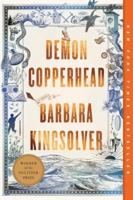Publisher's Synopsis
Trilby is a novel written by George Du Maurier, first published in 1894. Set in the bohemian Paris of the 1850s, the story follows the life of Trilby O'Ferrall, a young woman who is transformed from a simple artist's model into a famous singer under the hypnotic influence of the sinister musician Svengali. Trilby is a captivating tale of love, art, and obsession, exploring themes of identity, power, and the darker side of human nature. The novel is divided into three parts: ""The Laird's Lug"", ""The Little Billee"", and ""Trilby"". The first two parts introduce the main characters and set the scene for the dramatic events that follow in the third part.The novel is known for its vivid descriptions of Parisian life, its exploration of the relationship between art and reality, and its portrayal of the destructive power of obsession. It is also notable for its use of the character of Svengali, who has become a cultural icon representing the idea of a master manipulator who uses hypnotic powers to control others.Trilby is a classic of Victorian literature, and its influence can be seen in later works such as Gaston Leroux's The Phantom of the Opera and Daphne du Maurier's Rebecca. It is a timeless story that continues to captivate readers with its haunting beauty and unforgettable characters.Mon ami, an apple is an excellent thing -- until you have tried a peach! Her voice to that of Alboni is as a peach to an apple--I give you my word of honour! but bah! the voice is a detail. It's what she does with it--it's incredible! it gives one cold all down the back! it drives you mad! it makes you weep hot tears by the spoonful! Ah! the tear, mon fy! tenez! I can draw everything but that! Ca n'est pas dans mes cordes! I can only madden with love! But La Svengali! . . . And then, in the middle of it all, prrrout! . . . she makes you laugh! Ah! le beau rire! faire rire avec des larmes plein les yeux--voila qui me passe! .. . Mon ami, when I heard her it made me swear that even I would never try to sing any more.This scarce antiquarian book is a facsimile reprint of the old original and may contain some imperfections such as library marks and notations. Because we believe this work is culturally important, we have made it available as part of our commitment for protecting, preserving, and promoting the world's literature in affordable, high quality, modern editions, that are true to their original work.










